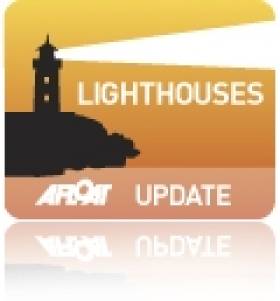Displaying items by tag: Pole Star
Northern Lights Scottish Star Set South to Homeport of Irish Lights
#PoleStar – Northern Lighthouse Board's aids to navigation tender NLB Pole Star which normally serves in Scottish waters and also has responsibility for the Isle of Man, made a brief call to Dun Laoghaire Harbour over the weekend, writes Jehan Ashmore.
The presence of Pole Star in Irish waters is not unusual as on occasions, operations require the deployment of these specialist ships between the three General Lighthouse Authority (GLA).
The GLA are the Commissioners of Irish Lights, Northern Lighthouse Board and Trinity House which works in English and Walsh waters and those of the Channel Islands.
During Pole Star's overnight Friday-Saturday call to Dun Laoghaire, the harbour is where CIL are headquartered and is also the homeport of ILV Granuaile, which is understood to be at Cork Dockyard.
As Afloat.ie previously reported, she underwent last year a '15 year Special Survey Dry-docking' awarded to the Rushbrooke based facility that beat off stiff competition from other European yards.
At this stage, it is uncertain if the call to Cork (or for layover period?) was directly to do with the deployment of Pole Star. The vessel departed the Dublin Bay harbour yesterday for Belfast Lough and today headed up the Firth of Clyde bound for Greenock.
Pole Star (2000/1,174grt) the smaller of the two NLB vessels, is otherwise an Oban based buoy-laying vessel which can also carry out hydrographic surveys.
Combined, the GLA's have a fleet of six ships in which CIL's ILV Granuaile built also in 2000, was the first in terms of ship design of the lighthouse umbrella organisation to have her working deck positioned aft. i.e. at the back of the ship where buoys are stowed to and from deployment.
At the time of Granuaile's introduction, this far improved design was followed suit by her GLA counterparts. However, Trinity House's THV Patricia, dating from 1982, remains as the sole survivor of the traditional forward located working deck arrangement between the superstructure and bow.
Notably, she is the only tender to accommodate paying-passengers (numbering 12) who can join the vessel as she carries out her routine duties.





























































